By Ian Bremmer - Project Syndicate | May 12, 2025
Although Iran and the United States remain far apart on major questions regarding the Islamic Republic's nuclear program, a new round of indirect talks indicates that both sides view diplomacy as preferable to escalation. The window for achieving nuclear de-escalation may be narrow, but it is real.
NEW YORK – Negotiators from the United States and Iran have just convened in Oman for their fourth round of nuclear talks. The two sides remain far apart on fundamental questions, they have diverging expectations, and they are running out of time. But for the first time in years, there is cause for optimism. What distinguishes this moment is not a sudden convergence of positions but a shared recognition that diplomacy is preferable to confrontation.
Iran insists that its nuclear program is strictly for civilian purposes, and the latest US intelligence assessment concludes that it is not currently building a nuclear weapon. Nonetheless, Iran’s enrichment activities have expanded significantly since Donald Trump withdrew the United States from the 2015 Joint Comprehensive Plan of Action (JCPOA) in 2018. Today, Iran is a threshold nuclear state with enough 60%-enriched uranium to produce six nuclear weapons (if enriched to 90%), and the ability to “dash to a bomb” in about six months (though weaponizing a device would probably take between one and two years).
For much of the West, this situation is unacceptable. Without diplomatic progress by the end of June, the US will be compelled to trigger a “snapback” of United Nations sanctions. But that would destroy what remains of the diplomatic track, prompt Iran to withdraw from the Nuclear Non-Proliferation Treaty, and escalate the risk of a military conflict.
Trump wants a comprehensive deal that goes beyond the JCPOA in curtailing enrichment, restraining missile development, and modifying Iran’s regional behavior. But this is a fantasy. Iran will not agree to a full rollback of its nuclear program, let alone dismantle its regional alliances – and especially not in the next few weeks. Nor will it give up enrichment or ballistic missile capabilities that are central to its deterrence posture.
Yet even in this constrained environment, a diplomatic path remains open. Both sides have incentives to accept a more limited agreement to avoid military confrontation. Trump, for all his fire and fury, is disinclined to start new wars. His recent removal of National Security Adviser Michael Waltz, an Iran hawk, was telling. So was his announcement, on May 6, of a ceasefire with the Houthi rebels in Yemen.
Trump prefers a negotiated outcome, as do his Gulf allies, and he believes that there has never been a better time to get one, now that Iran has been so substantially weakened. With his administration’s efforts to broker a Russian-Ukrainian ceasefire faltering, the Iran file offers his best – and perhaps only – chance for a major diplomatic success before the end of the year.
Although Iran initially rejected formal engagement, its hard-liners ultimately approved indirect talks via Oman, indicating a willingness to engage in direct negotiations if progress is made there. This shift reflects the Iranian regime’s recognition that continued economic and diplomatic isolation carries increasing costs. Iranian officials view sanctions relief as essential to reversing the slow collapse of the economy and containing risks to the regime from social unrest.
While the Iranians regard Trump as a hostile actor, some see his desire to secure diplomatic “wins” – and his reluctance to launch new wars – as an opportunity to obtain a reprieve without offering major concessions. Though Iran does not directly control the Houthis, it did reportedly press them to agree to the ceasefire, which addressed a key US concern – Iran’s support for regional proxies – and improved the mood for nuclear talks.
The sticking point is Iran’s enrichment capability. It has rejected US Secretary of State Marco Rubio’s suggestion that it rely on imported uranium for its civilian nuclear program, rather than enriching domestically. The Islamic Republic views enrichment as a non-negotiable sovereign right. Still, it remains open to a more limited deal that would cap enrichment, ensure verification by the International Atomic Energy Agency, and provide credible assurances that it is not building a nuclear weapon.
Recent statements from the White House have also shown greater flexibility. On May 4, Trump said his main goal is to prevent Iran from acquiring a nuclear weapon, not to eliminate its civilian nuclear capacity. And on May 7, Vice President J.D. Vance reiterated that Iran “can have civil nuclear power,” but not an enrichment program that brings it close to a weapons capability. This distinction – between civilian use under strict limits and weaponization potential – could allow for a narrow agreement aimed at keeping diplomacy alive past the summer.
This is not America’s preferred outcome, of course. Trump is notoriously impatient and will be skeptical of a deal that appears designed to string him along. But a comprehensive agreement between parties that deeply mistrust each other cannot be negotiated in two and a half months. With Trump having already threatened to bomb Iran if talks fail, a more modest deal is the only viable alternative to military confrontation. Fortunately, Trump has always shown a willingness to shift away from maximalist positions when he can claim a political victory.
If progress is made, the US would defer the sanctions snapback, either informally, by pressuring its European allies, or by seeking a new UN Security Council resolution to extend the deadline. US allies in Europe, and even Russia and China, could support such a move if it is framed as a way to avoid a crisis. This approach would preserve the option of a snapback, while keeping the diplomatic track open and holding off immediate escalation.
The military option would remain on the table. The US has expanded deployments in the region, and B-2 stealth bombers capable of carrying munitions designed to penetrate hardened targets – such as Iran’s enrichment facilities at Fordow and Natanz – are in place. These deployments serve both as negotiating leverage and as preparation for potential air strikes in case the talks fail.
There is no guarantee of success. Iran may reject US terms or overplay its hand, dragging its feet in the hope of extracting further concessions. Trump may decide that the concessions are insufficient and shift course toward a snapback, or worse. If negotiations collapse and the US or Israel attacks Iran’s nuclear facilities, Iran will retaliate against US military targets in the region and move to weaponize its nuclear program.
These are all realistic scenarios. But despite these risks, the current round of diplomacy represents the most serious opportunity for nuclear de-escalation since the collapse of the JCPOA seven years ago.
Ian Bremmer, Founder and President of Eurasia Group and GZERO Media, is a member of the Executive Committee of the UN High-level Advisory Body on Artificial Intelligence.
Copyright Project Syndicate
TIPP Takes
Geopolitics, Geoeconomics, And More
1. Kremlin Says Putin Is Serious About Ukraine Peace Talks - Reuters
The Kremlin said that Russian President Vladimir Putin was serious about trying to find peace at talks he has proposed in Turkey, but his spokesman said he could say no more about the talks after Ukraine demanded that the Kremlin chief attend.
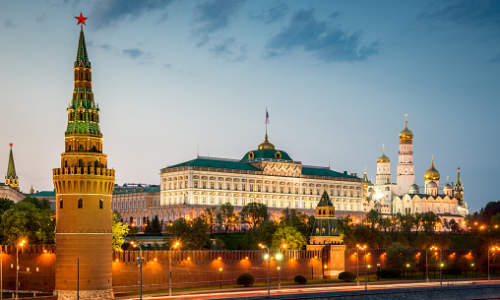
Putin on Sunday proposed direct talks with Ukraine aimed at ending the war, and, after President Donald Trump publicly told Ukrainian President Volodymyr Zelenskyy to accept, Zelenskyy said he would but that Putin should attend in person.
2. Russia ‘Completely Ignoring’ Ceasefire Proposal, Ukraine Says - Reuters
Russia is “completely ignoring” a 30-day ceasefire proposed by Ukraine and European powers that was to have begun on Monday, Ukrainian Foreign Minister Andrii Sybiha said.

Writing on X, Sybiha said he had spoken to European ministers meeting in London, and they had discussed steps that could be taken against Russia, including new sanctions against the Russian banking and energy sectors and the Russian central bank.
3. U.S. And China Agree To Slash Tariffs For 90 Days - RFA
According to the joint statement, the U.S. will temporarily lower its tariffs on Chinese goods from 145% to 30% by May 14, while China will cut its levies on American imports from 125% to 10%.

Washington’s 20% duties on Chinese imports relating to fentanyl will remain in place. Both sides recognize “the importance of a sustainable, long-term and mutually beneficial economic and trade relationship,” they said in the statement.
4. China Tariffs Won't Return To 145% After The 90-Day Pause - TIPP Insights
President Donald Trump said tariffs on Chinese imports will not return to 145% after the current 90-day pause, signaling optimism about ongoing trade negotiations.
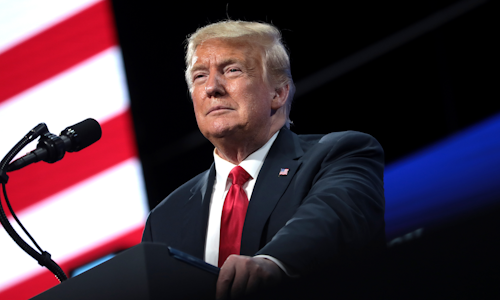
Speaking after a weekend of high-level talks in Geneva, Trump called the discussions “productive” and declared a “total reset” in U.S.and China trade relations. “They’ve agreed to fully open China,” Trump said, noting that Beijing had committed to removing non-monetary barriers to U.S. trade.
5. Hamas Releases U.S. Hostage Raising Hopes Of Gaza Ceasefire - D.W.
Hamas announced that it had released Edan Alexander, believed to be the last living U.S. hostage in Gaza, as it strives to restart ceasefire talks.
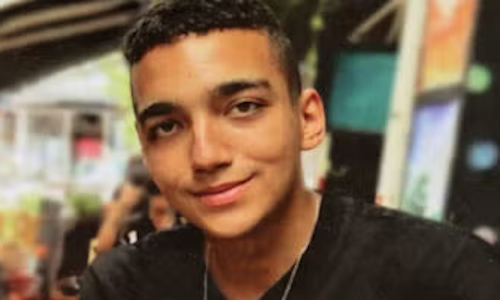
The group said it had taken the step as a goodwill gesture toward the Trump administration in hopes that it might lay the groundwork for a new ceasefire with Israel. Edan Alexander is an American-Israeli soldier who was abducted from his military base in southern Israel during Hamas' October 7, 2023, cross-border attack that set off the war in Gaza.
6. Iran, United States Complete 'Difficult But Useful' Nuclear Talks - UPI
A fourth round of nuclear talks between the United States and Oman have produced encouraging results for the Trump administration, a senior official told reporters.
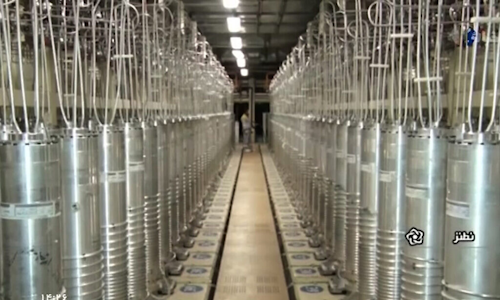
White House envoy Steve Witkoff met with Iranian foreign ministries Accas Araghchi for three hours Sunday in Muscat. The talks were mediated by Omani Foreign Minister Sayyid Badr al-Busaidi. Iran's Ministry of Foreign Affairs described the talks as "difficult but useful." Both sides were guarded in their comments.
7. First White South Africans Flying To U.S. Under Trump Refugee Plan - BBC
The first group of 49 white South Africans to be granted refugee status by the U.S. is due to arrive shortly, after leaving Johannesburg on Sunday.

Relations between South Africa and the U.S. have been tense for months, after President Donald Trump said that members of the country's Afrikaner minority were victims of "racial discrimination". This was dismissed by South Africa's Foreign Minister Ronald Lamola. South Africa says that any allegations of persecution would not meet the threshold "required under domestic and international refugee law".
8. Trade Ultimatum Brought India And Pakistan To Peace Table: Trump - TIPP Insights
Speaking at the White House, President Trump said the two nuclear-armed nations were “going at it hot and heavy” and praised both sides for their “unwavering but powerful” leadership in defusing the situation.
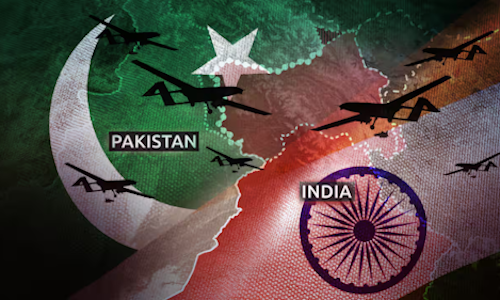
Trump claimed trade was central to his approach, saying, “If you stop it we do trade. If you don’t stop we don’t do any trade. People have never used trade the way I use it.” The president did not elaborate on the terms of the ceasefire or whether any formal agreement had been signed.
9. Taliban 'Suspends' Chess Playing In Afghanistan Citing Religious, Gambling Concerns - RFE/RL
A Taliban official said a decision will be made on the possible resumption of chess under the auspices of the country's sports department, but no time frame was given.

"Chess in Shari'a [Islamic law] is considered a means of gambling," sports directorate spokesman Atal Mashwani was quoted by AFP as saying. "There are religious considerations regarding the sport of chess," he said.
10. Prescription Drugs Will Drop 59% Under New Order: Trump - TIPP Insights
President Donald Trump announced he will sign an executive order to slash prescription drug prices by up to 59%, reviving a “most favored nation” policy that would tie U.S. prices to the lowest paid globally.

In posts on Truth Social, Trump said Americans have been “suckers” for paying up to ten times more than other countries for the same medications. The order is expected to focus on the Medicare program and will be unveiled Monday at a White House event with Health Secretary Robert F. Kennedy Jr.
11. "Pharma Companies Won't Be Affected:" Trump Says Drug Firms Won’t Be Hit - TIPP Insights
President Donald Trump said that U.S. healthcare companies “won’t be affected very much” by his new executive order to slash prescription drug prices.
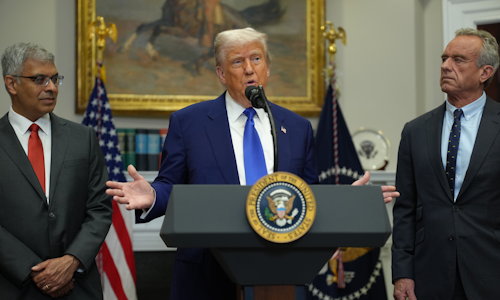
“They’ll make the same money,” Trump told reporters, adding that the plan was “just a redistribution of wealth.” Trump argued Americans have been unfairly subsidizing cheaper healthcare in Europe, where he said prices are significantly lower.
12. Pope Leo XIV Tells Media To Help Promote Global Peace By 'Disarming' Words - UPI
Pope Leo XIV called for a kinder, gentler media, one that speaks up for those with no voice and in defense of free speech, and expressed solidarity with reporters imprisoned around the world for doing their job.
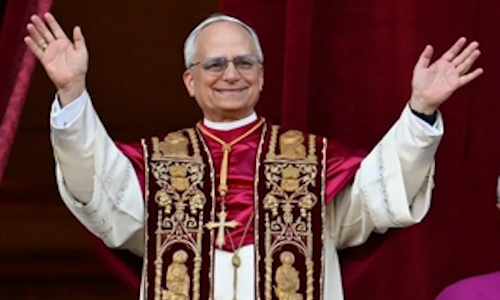
In his first meeting with the more than 1,000 journalists who make up the Vatican press corps, Leo thanked them for their work covering the papal transition and urged them to use their platform to foster peace by taking care over "how people and events are presented."
13. AI Firm Perplexity Eyes $14 Billion In Valuation In Fresh Funding Round, WSJ Reports - Reuters
Perplexity AI is in advanced talks to raise $500 million in a funding round that would value the startup at $14 billion, the Wall Street Journal reported, citing sources.

Venture capital firm Accel is set to lead the round, the report said. The Nvidia-backed startup provides artificial intelligence search tools that deliver information summaries to users, similar to OpenAI's ChatGPT and Google's Gemini.
14. Survey: U.S. Adults' Use Of Illicit Opioids 20 Times Higher Than Previously Estimated - UPI Health
The number of Americans using illicit opioids, including fentanyl, is 20 times higher than previously estimated, according to a study published by researchers from the RAND Corp. and the University of Southern California.

Researchers said government counts may significantly underestimate illicit drug use, and they suggest new methods are needed to better track the nation's opioid crisis, which transitioned from heroin in the early 2010s to illicitly manufactured fentanyl a few years later.








